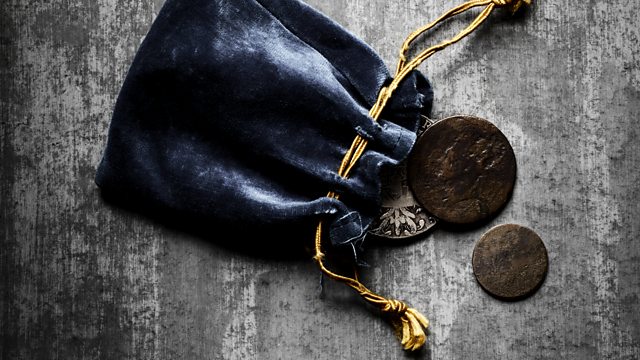The Moral Power of Debt
Anthropologist David Graeber explores the ways debt has shaped society over 5,000 years. In this episode he examines the moral power that debt holds over people.
Anthropologist David Graeber explores the ways debt has shaped society over 5000 years. In this episode, he examines the moral power that debt holds over us.
David argues that whenever we think about debt we end up in a deep moral confusion. We resent the "deadbeats" who fail to pay us back and yet many of us believe that people who get us into debt - money lenders - are immoral if not downright evil.
Gangsters like Don Corleone frame what they do in terms of debt. They do so in the knowledge that debt is a powerful tool for taking even pure extortion and making it seem like it's the debtor who is in the wrong. We can't help but believe Don Corleone when he tells us we owe him one.
It's not just gangsters who utilise the moral power of debt. Over the course of history commanders of foreign armies, wealthy landlords, corrupt officials, and local thugs have been able to tell their victims that those victims owe them something. If nothing else, they "owe them their lives" (a telling phrase) because they haven't killed them.
For most of human history, most human beings have been told that they are debtors. In this series, David examines the human consequences which have profound implications for the politics of the present day.
Producer: Max O'Brien
A Juniper production for BBC Radio 4.
Last on
More episodes
Previous
You are at the first episode
Next
Broadcasts
- Mon 2 Mar 2015 13:45BBC Radio 4
- Mon 2 Jan 2017 14:15BBC Radio 4 Extra
- Tue 3 Jan 2017 02:15BBC Radio 4 Extra
Featured in...
![]()
Economics Made Easy
The mysteries of economics debunked


